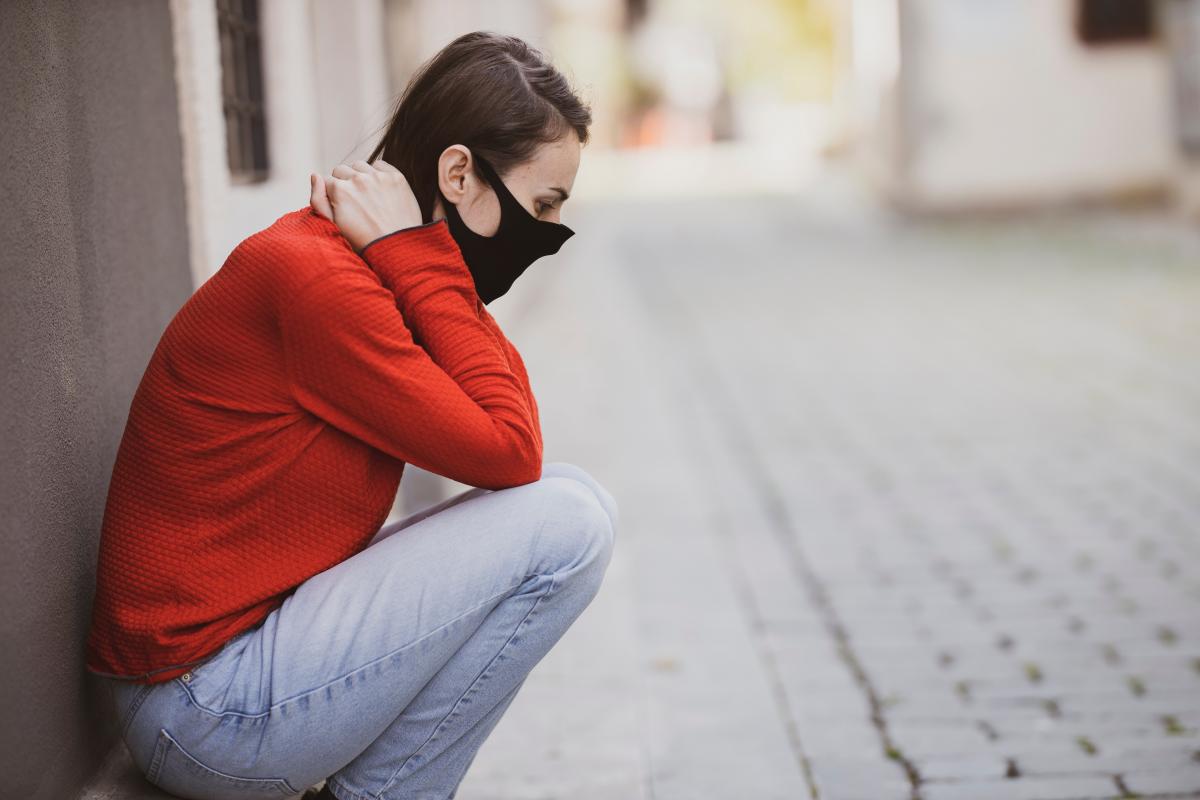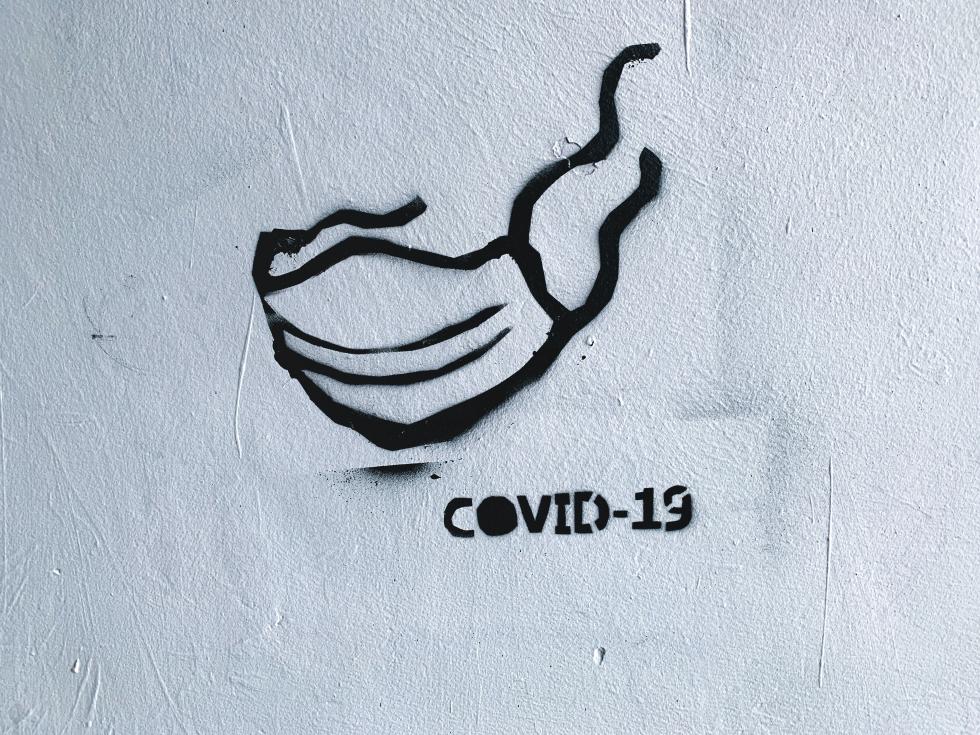When Annick Noirfalisse’s daughter was still struggling with symptoms four months after being diagnosed with COVID-19, she became curious about the post COVID-19 syndrome also known as ‘Long-COVID’. Here she shares what she has learned about Long-COVID and offers a few suggestions on resources in the Netherlands.
My daughter was one of the last ones in her high school to catch the virus, before the school shut down. Fortunately, her COVID-19 symptoms were quite mild. What we didnt know then is that her complaints would turn into something else and last for so long. We didn’t know there would be so little either we or her doctor could do for her. We were told to come back if her symptoms didn’t improve in a month. After there was no change in three months, we returned and still nothing was offered. We were advised to wait and see.
Now, four months after testing positive for Covid-19, her sense of smell and taste have not fully returned (anosmia). In fact, it seems to be distorted (parosmia). Orange and lavender smell awful, and a few things smell like burnt wood. The deep cough also returned, which our doctor said would improve. We are still waiting.
What is Long-COVID?
There is no agreement on the definition of Long-COVID but in the UK, the National Institute for Health and Care Excellence (NICE) defined it as:
Signs and symptoms that develop during or after an infection consistent with COVID-19, continuing for more than 12 weeks and unexplained by an alternative diagnosis.
According to the literature, the symptoms can even last up to a year and affect young adults and children without underlying chronic medical conditions.
Recognition of this post-COVID-19 condition is growing, but more research is needed according to the World Health Organization, which calls on decision-makers to support patients, as 1 in 10 report symptoms of Long-COVID-19 after 12 weeks. An interesting update about the long term effect of COVID-19 was presented by the WHO in September 2020.
According to some studies, between 10 to 35% of COVID 19 patients, who had symptoms ranging from mild to severe struggle with Long-COVID.
The Royal Dutch Medical Association estimated until end 2020 that 10% of mild to severe COVID-19 symptoms would evolve into a Long-COVID exceeding three months, though some clinicians think that estimate is probably too low.
“It is, however, a lot more” says Xavier Falières, a French anaesthesiologist who has been working at the Albert Schweitzer Ziekenhuis in Dordrecht for twenty years. “I do not know what the reality is, and to what extent we are not redefining the syndrome, with so many new clinical signs we are going to include more and more patients. Is it an adaptation of the virus that would kill fewer people?” he wonders. Still, he remains cautious, “We shouldn’t create a disease from scratch, in which everyone who’s had COVID recognises himself . Far be it from me to deny that there are some long COVID syndromes that are handicapping, but 30% of the 1.25 million cumulative confirmed COVID-19 cases (i.e. 375,000 cases) in the Netherlands? I have a bit of a hard time [believing that]. It should not become like the Chronic Fatigue Syndrome of the 80s and 90s, which saw thousands of people permanently incapacitated, receiving allowances without any proof of [having] the disease, [though] the syndrome has since been much better defined with strict criteria and the number of cases has strongly diminished”.
Reports of the so-called Long-COVID are rising but little is known about the prevalence, risk factors or whether it is possible to predict a protracted course early in the disease. Long-COVID was more likely with increasing age, body mass index, and being female, reported Nature Medicine.
A new national study from Radboud University Medical Center, in Nijmegen, is investigating paramedical recovery care for Long-COVID patients to understand the illness better and form a more accurate picture of its prevalence.
Long-COVID: Signs and symptoms that develop during or after an infection consistent with Covid-19, continuing for more than 12 weeks and unexplained by an alternative diagnosis.
Possible Symptoms
According to the Centers for Disease Control and Prevention, Long-COVID has wide-ranging symptoms:
- fatigue
- cough
- congestion or shortness of breath
- loss of smell (anosmia) and taste
- distorted smells (parosmia)
- headache
- body aches
- diarrhea
- nausea
- chest or abdominal pain
Psychological problems, such as depression, anxiety, brain fog and other rarer symptoms such as hair loss can also be added to the list. Some patients have presented with up to 13 symptoms.

Treatment
Current Situation in the Netherlands
“There is no scientific evidence available concerning the optimal aftercare for post-COVID patients,” acknowledges the Dutch College of General Practitioners (NHG). There is still insufficient knowledge regarding the extent of long-term damage to the lungs, heart, blood vessels, or brain. Moreover, there are indications of an increased risk of thromboembolic complications in the acute and recovery phase.
According to the NHG, long-term complaints are a real issue and we are only seeing the tip of the iceberg. This issue is also on the RIVM’s (National Institute for Public Health and the Environment) agenda.
Where Can You Seek Treatment?
Your general practitioner will refer you or your child to a specialist if symptoms persist. For further advice on a post-Covid referral and ambulant revalidation in case of multiple complaints, see the guidelines of the Nederlands Huisartsen Genootschap (NHG).
In Amsterdam, there is a post-COVID clinic (Corona Nazorg Poli) at UMC in the AMC location. Again, you would need a referral from a specialist or a general practitioner to access it. This multidisciplinary clinic, which plans to work with OLVG, has a specialist team of pulmonologists, infectious diseases specialists, vascular doctors, cardiologists, physiotherapists, and dieticians.
Resources
Insurance
Anyone presenting with chronic complaints after a COVID-19 infection has a right to care covered by their basic insurance: convalescent paramedical care, which includes physiotherapy, ergotherapy, dietary advice, and speech therapy. Ask for a referral from your general practitioner or specialist. It is neither necessary to have been tested positive for COVID-19, nor to have been hospitalized.
The Zorgwijzer website has received thousands of reactions from long-Covid sufferers, which may help answer your questions on healthcare insurance further.
For more advice on COVID-19 infection aftercare, consult the Dutch College of General Practitioners (Nederlands Huisartsen Genootschap – NHG).
Support
- C-Support nazorg COVID-19 looks broadly at the consequences of the disease. The aftercare advisor does not offer medical care, however, they can discuss your medical-related questions concerning corona and your work, income, and psychosocial consequences.
- St Antonius Ziekenhuis in Utrecht offers some valuable advice on recovery from Covid-19 (in Dutch).
- The World Health Organization wrote a practical guide on “Support for rehabilitation self-management after Covid-19-related illness.”
- Survivor Corps is a not-for-profit, grassroots movement educating and mobilizing COVID-19 survivors, connecting them with the medical, scientific, and academic research community, to help stem the tide of the pandemic and assist in national recovery.
- Long-Covid Kids is a website available in 11 languages including French, German, Spanish, Italian, Arabic, Polish, and Portuguese. You can also find them on Facebook under ‘Long-Covid Kids – Parents Support Group.’
- Reuk- en smaakverlies na COVID-19 is a Facebook group for people who have lost their senses of taste and smell (anosmia).
- Corona patiënten met langdurige klachten is a Facebook group for people struggling with the long-term effects of Covid-19.
- Association Anosmie has a 12 weeks free olfactory training protocol for the loss of smell.
Looking Forward
In a policy brief from the World Health Organization published on February 25th, In the wake of the pandemic: preparing for Long-COVID, the authors recognize that many people struggle to recover from acute infection. They often suffer from disabling symptoms lasting weeks, months, or even longer.
The WHO brief highlights areas where policy-makers can take action to meet the challenge of post-Covid conditions, such as creating appropriate services, including rehabilitation and online support tools, addressing employment rights, sick pay policies, and access to disability benefits, involving patients to foster self-care and self-help, and shaping awareness of post-COVID conditions.
Fortunately, there is hope. Some Long-COVID sufferers have reported that their symptoms disappear after their vaccinations according to the Washington Post. However, more research is needed as it is too early to say whether vaccinations have an unequivocally beneficial effect on Long-COVID sufferers.
Only time will tell.
Photo credit: Banner by Adam Nieśiouruk. In-text images by Richárd Ecsedi , Engin Akyurt and Diana Polekina. All royalty-free images curated via Unsplash
Annick Noirfalisse
Annick Noirfalisse is a Belgian mum of three, who has worked for more than ten years as a journalist in Switzerland, London, and Amsterdam, covering economics, finance, societal, environmental, and health issues. She's also a French language teacher and translator, who loves Japanese food, doing sports, and nature walks in her spare time.






